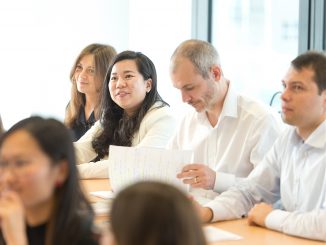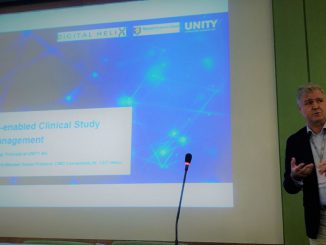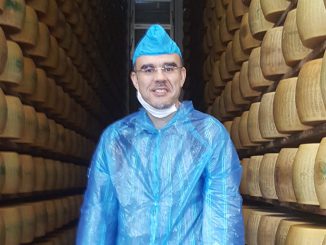
Yanina Tykholoz, MBA student at Munich Business School, is investigating the use of Enterprise Social Software by consultants for her thesis. Yanina will share some of the findings from her research, which was supervised by Professor David Wagner (Munich Business School) and Professor Alexander Richter (Wellington School of Business and Government) at the 2020 Conference on Communities in New Media: Knowledge Communities in Science, Business, Education & Public Administration, to be held in Dresden from October 7 to October 9, 2020. In the blog post the three researchers give a closer look at the topic.
In recent years, the popularity of public social media platforms led a growing amount of companies to implement Enterprise Social Software (ESS). ESS can be understood as online applications used in business contexts to foster communication, collaboration and exchange of information, which is particularly relevant for knowledge workers, such as consultants. Some prominent examples of ESS applications are Microsoft Teams, Yammer, SharePoint, Confluence, Slack, etc.
Despite the growing trend and its various benefits, ESS also comes with a number of challenges. One major difficulty is that employees are often missing a clear direction and guidance on how to use such technology. Given the lack of prescribed application patterns (a characteristic researchers have coined “malleability”), ESS usage requires individual sense-making and reflection on possible beneficial uses.
In order to explore typical practices by management consultants in an exemplary organization, Yanina conducted interviews with consultants who are frequently using ESS in their daily work. As a result, six use cases/practices were identified from the interviews. The findings suggest that consultants are able to employ ESS in a way that specifically suits their job requirements.
For example, the raison d’être of consulting companies is their human capital, i.e. the knowledge of their employees. To deliver solutions to a client’s problem, consultants need to leverage joint knowledge spaces, thereby lifting the company-wide level of know-how. The following quote illustrates how consultants use ESS to streamline this knowledge dissemination: “Traditionally, I would say from 2006 to 2018, a lot of things were done via Outlook or via email client. This means, information was lying in the local mailboxes. For the first time ever, I now have the possibility to share it (information) with other people on (ESS). This breaking up of knowledge silos, making project work across projects possible in the first place, I think, is a very important point that many people have not yet recognized.”
The results of the project shed light on how consultants benefit from the malleability of ESS and tailor the software to meet their job-specific requirements (here the practice of leveraging joint knowledge spaces). In doing so, the researchers extend the set of known ESS use cases and introduce new ones, thereby providing guidance on possible fields of application to support successful ESS appropriation. Moreover, by taking a practice perspective, the researchers also show that ESS is not simply an artefact, but is rather a tool operationalized within specific industry practices, by which it in turn contributes to the digitalization of consulting (practice) itself.
To find out more about this research project and additional ESS use cases, you may visit the online presentation at GeNeMe conference on October 9, 2020 from 11:05 to 11:25. Here you can register for the conference. The full paper will be published later as part of the conference proceedings.




